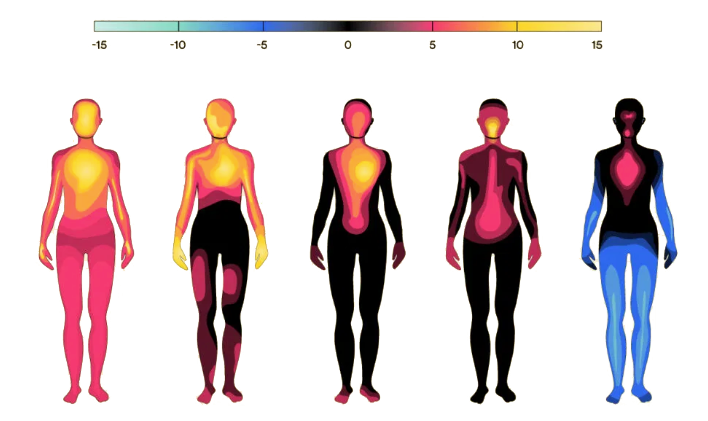Pay attention to your body's signals
Well-being 🌿 | Know yourself 🧭 | #Body #Mind #Signals
TL;DR
Being mindful of our body and mind signals is crucial for understanding our mental and emotional well-being.
Our emotional state often manifests in physical sensations before we consciously realise what we're feeling.
Recognising the connection between our moods and bodily reactions allows us to manage stress and other emotional states proactively, preventing them from becoming overwhelming.
Seed
In a previous Seed, we’ve seen how Discomfort is a signal, not an issue. This subject revolves around a more general and very important topic: being mindful of our body and mind signals.
Our emotional state often translates into physical sensations before we consciously realise what we're feeling. By being mindful of these signals, we can gain valuable insights into our mental and emotional well-being.
Stress, anxiety, happiness, and other emotions can impact our physical well-being. It's important to pay attention to these signals, and even more, to understand the connection between our moods and those reactions.
Often, stress and other emotional states build up gradually. And we may only notice them when physical symptoms arise, such as headaches or sleep disturbances. That’s the “discomfort” we were talking about in the previous Seed. By being attuned to these early signs, we can proactively manage stress before it becomes overwhelming.
It's worth noting that our body's reactions may vary over time. There is no definitive guidebook for interpreting them. But it's worth trying to extract a general trend. Regularly analysing how your body feels can help you recognise patterns in your mood. Ask yourself questions like:
Which parts of your body react to different emotions like stress, fear, sadness, or joy?
Do you experience headaches, digestion troubles, back pain, or general soreness?
Can you identify patterns or connections between your emotional state and physical sensations?
By doing this, and taking early action, you can proactively care for your well-being. Treat yourself with the same care and compassion you would show to your loved ones. Your body has a powerful language, and understanding it empowers you to nurture your mental health.
Example
Over time I noticed that I get irritable when I’m tired. Even if I’m not really stressed out, general tiredness makes me more sensitive to the smallest frustrations. So I progressively learned to notice when I’m slowly entering this irritated state and I learned to take a step back before it turns into over-reacting anger.
Bonus
Where do we usually feel emotions?
If you’re curious and like data and infographics like me, have a look at this article: Where Emotions Are Felt In the Body, According to Research



